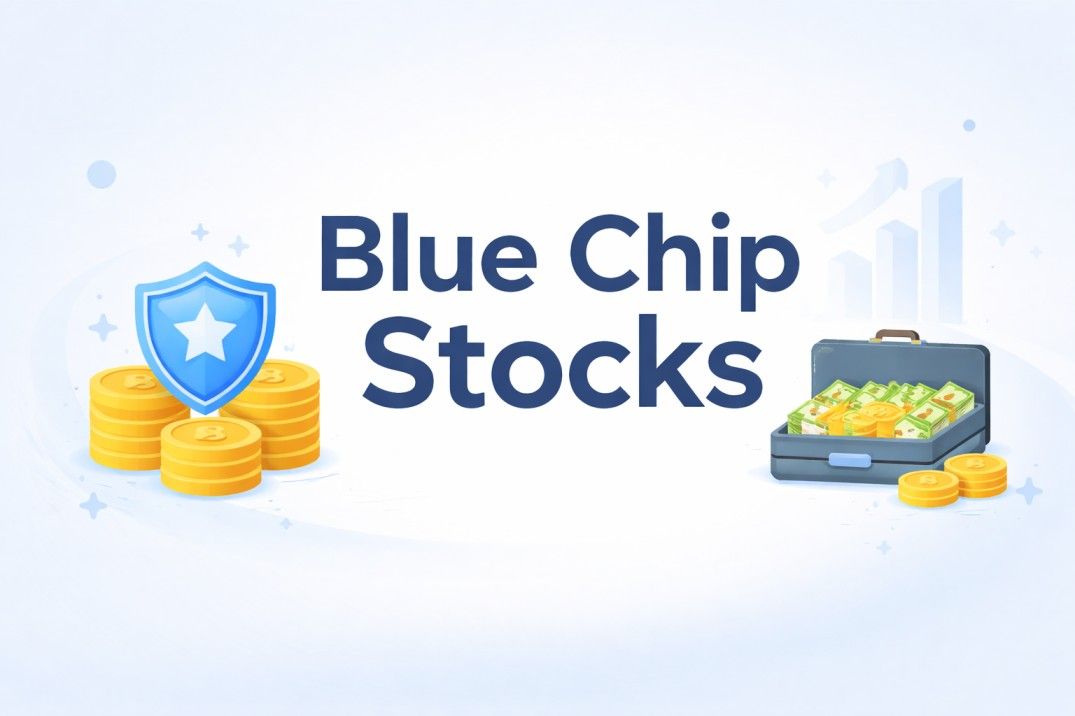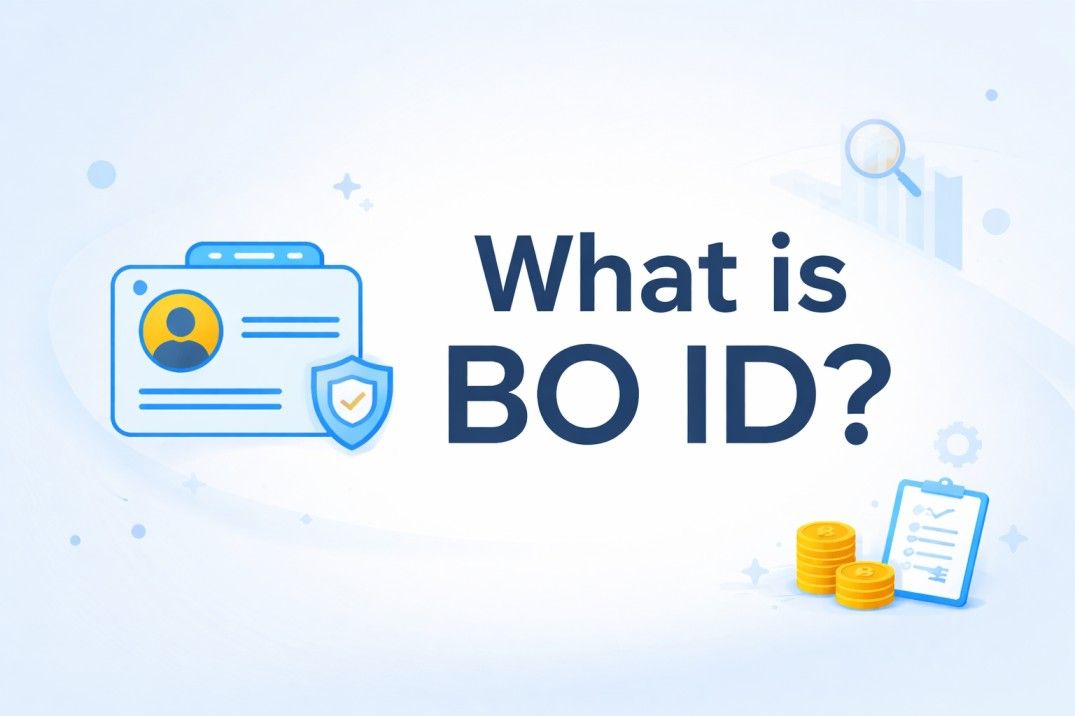- Home
- Blog
- Demat Account
- Bonus Shares Explained In Detailed
- Bonus Shares Explained In Detailed
Bonus Shares Explained In Detailed

- Published Date: September 13, 2024
- Updated Date: February 09, 2026
- By Team Choice
Bonus shares are the additional shares that are given to the existing shareholder at zero cost and are fullied paid but in a stock split it works differently so there is a difference between bonus and stock split.
This blog discusses the types of bonus shares, the eligibility criteria, and a few key terminologies in detail to provide a broad idea of the provision of goodwill by companies in the financial markets. Thus, to gain a deeper understanding of the phenomenon, the contrasting advantages and disadvantages of bonus shares have also been listed. Read along for insightful information about bonus shares.
What are Bonus Shares?
Bonus shares are the extra shares issued to the shareholders by the company at zero cost as a matter of goodwill. When the company makes a certain profit or wants to distribute from its reserves to the shareholders, it can either do it in the form of dividends or bonus shares.
The company generally announces bonus shares upon acquiring better profits, and the timing of issuance can vary. If the company’s Board of Directors collectively agree on distributing the shares, the bonus shares are given out to the shareholders of the same.
Also Check - Upcoming Bonus Shares
What are The Types of Bonus Shares?
There are two major types of bonus shares given out to the public:
1. Fully Paid Up Bonus Share
Fully paid up bonus shares are given out to the existing shareholders without any extra financial burden. They are given out in proportion to their pre-existing holdings, and the shareholders already pay for these shares at the time of their issuance.
2. Partially Paid Up Bonus Share
The partially paid up bonus shares are the stakes the shareholders must pay fully for at the time of its issuance. They are not fully paid by the shareholder yet and, hence, are called partially paid bonus shares. The company usually communicates the payment needed.
How do Bonus Shares Work?
Bonus shares are offered to the shareholders as an extra benefit from their usual holdings. They do not cost any additional amount and always increase the number of shares that people own. However, these shares decrease the price of each share as per the ratio of its issuance.
In easier words, if a bonus share is released in a 1:1 ratio, then the price of the normal share decreases by half, and hence, the amount held by the shareholders in the form of shares remains the same while the units increase by two-fold. Therefore, for each share, the people get another bonus share and the price of both halves. Thus, the total investment of the shareholder remains the same immediately after the bonus issue. However, their investment value can get a boost quickly in the future with the additional bonus shares when the company stocks appreciate in value.
Why do Companies Issue Bonus Shares?
Bonus shares are a wonderful concept to the shareholders, but it appears to be a questionable step for the company. Here is why the companies issue bonus shares:
1. Encouraging Participation
When the bonus share is released, the stock price is reduced according to the same ratio of the issue of the bonus share. Hence, investing in the shares becomes more affordable, making bonus shares a grand idea in encouraging stock market participation. This also increases the market liquidity.
2. Increases Liquidity
Since giving away bonus shares increases the buying of the company's shares at a reduced price, this increases the market liquidity. With multiple shares bought and sold, the liquidity rises, which is helpful to the company as well. Thus, with bonus shares, the company acquires this benefit.
3. Company Image
When a company chooses to issue bonus shares, it comes off as financially strong in the market. Since bonus shares are essentially extra accumulated profit distributed among the shareholders, the declaration of bonus shares raises the company’s reputation in the financial market. Thus, the bonus reflects the good financial health of the company.
4. Capitalising Reserves
Companies have reserves accumulated over a prolonged period. Issuing bonus shares allows the company to transfer some of these funds and reorder its balance sheet. Hence, giving out bonus shares is beneficial to the company’s financial health.
5. Rewarding Shareholders
Shareholders join or exit a company’s listing based on its financial health. Bonus shares are a great indicator of the company’s reputation in the financial market. Moreover, giving out bonus shares is a rewarding mechanism for the shareholders as well.
More recently, Reliance Industries has announced that a meeting of the Board of Directors is scheduled on September 5, 2023, to consider issuing bonus shares in the ratio of 1:1. This would be the fifth bonus issue by Reliance. The company had given bonuses previously in the years 1983, 1997, 2009, and 2017. Nifty companies such as L&T, Infosys, ITC, Cipla, Brittania, Tata Steel, and many others have announced bonus share issues multiple times.
Who is Eligible for Bonus Shares?
To be eligible for bonus shares, the shareholders must own the company's shares before the record date and the ex-date. The ex-date is a day before the record day, and the shareholders are eligible to receive the bonus shares if they bought them one day before the ex-date. Meanwhile, the record date is the date on which, if the shareholders have the company's shares in their trading account, they are considered eligible for the bonus shares.
What are the Conditions That Companies Need to Meet to Issue Bonus Shares?
Issuing of bonus shares has to undergo a common consensus of the Board of Directors of the company as well as many other guidelines. Here are the conditions the company needs to meet to issue bonus shares:
- SEBI-issued guidelines should be followed by the company before issuing the bonus shares.
- Companies must ensure that the share capital issued as bonus shares does not exceed the total share capital allowed to be diluted.
- To issue a bonus share, the company should notify the Reserve Bank of India and get its consent in return.
- Bonus shares supposed to be issued are required to be of the fully paid type; otherwise, the partially paid shares are supposed to be paid for by the shareholders.
- For the bonus shares to be given out to the shareholders, the Articles of Association needs to sanction the bonus share.
What are the Advantages of Bonus Shares?
Bonus shares are beneficial for both the company and the shareholders in numerous ways. Here are the advantages of bonus shares:
1. Decreased Prices
When the bonus shares are given out, the price of the general shares goes down in proportion to the bonus shares released. So, if for every share the person holds, one bonus share is released, the price of both decreases by half, encouraging more investment.
2. No Tax
Bonus shares and dividends are given out of the extra profit made by the company. However, unlike dividends, bonus shares have no tax on them. This is especially helpful to the shareholders and even encourages them to invest more in the company.
3. Increase Participation
Since bonus shares are a show of the company's financial strength and sound health, this encourages participating in investments as well. More people join the company as shareholders because of the decreased prices of the shares and the company's upgraded reputation in the market.
4. Increase liquidity
Since the bonus shares increase the public's investment participation, they also help increase liquidity. In addition, with the increased liquidity for the company, the shareholders also get better benefits in the long run in the form of fully paid bonus shares.
5. Increased Holdings
For the investors, getting bonus shares is like having more units without spending any more on the shares. Moreover, this increases their holdings in the company and also, at the same time, proves to be more beneficial to the long-term shareholders.
Case Study
Infosys Limited, a major IT company in India, issued bonus shares in June 2018 at a 1:1 ratio, meaning shareholders received one additional share for each share they owned. Before the announcement in May 2018, the share price rose to around ₹1,240.
On the ex-bonus date, June 14, 2018, the share price adjusted to about ₹620 to reflect the bonus issue, though the total value of shareholders' investments remained unchanged. Over the following months, the share price gradually recovered, showing that while bonus shares can lead to an initial price adjustment, the long-term impact on share value depends on the company's ongoing performance.
What are the Disadvantages of Bonus Shares?
While bonus shares benefit the company and the shareholders, they bear some disadvantages that people should be aware of. Such disadvantages are:
1. No Money Raised
Shares are the concept of dividing the company's ownership into chunks to raise capital from the public for the company. However, bonus shares offer no such benefit to the company and become a contrasting concept in the financial market.
2. Financial Burden on the Company
Handing out frequent bonus shares improves the company's reputation, but it also has downsides. One such drawback is the increased financial burden that accumulates in the long run by distributing the shares.
3. Dividends Over Bonus Shares
For the company, giving out dividends is considered more profitable and a wiser step than actively distributing bonus shares. Even shareholders that might have wanted dividends earned may withdraw from making any investments in the future.
4. Negative Image
Giving out bonus shares generates an overall good image and reputation for the company in the financial market. However, in the long run, doing so in place of dividend distribution may negatively impact the reputation and make the company seem like it is struggling to pay dividends to the shareholders.
Key Takeaway
Bonus shares are a wonderful opportunity for both the company and the shareholders to benefit themselves. While the company earns a better reputation in the market due to the assumption of having made surplus profit by giving out bonuses, the investors earn extra units of stock without having to spend anything extra on them.
Hence, from encouraging investment participation to getting extra liquidity, the bonus shares are a unique and overall opportunistic giveaway in the financial market.
If you want to know more about Bonus shares, then check out Choice Blogs to get the latest information on the stock market and make your trading better.
FAQs
1. Why do companies issue bonus shares?
Companies issue bonus shares to have a better reputation in the financial market and increase investors' participation in the company’s shares. The company also does this to grant rewards to loyal shareholders.
2. How does the issuing of bonus shares impact the share price?
Bonus shares, when issued, bring down the price of the normal shares according to the proportion of the bonus shares issued. This means that if a bonus share is issued for every share held, the share price is brought down by 50%.
3. How do you become eligible for bonus shares?
To become eligible for the bonus shares, the shareholders must have the shares of the respective company before the record date. The record date refers to the date the shareholders must have the shares in their trading account to become eligible.
4. Are dividends or bonus shares better for the shareholder?
Dividends offer immediate cash income for shareholders. Thus, they are taxed immediately during the same financial year. Bonus shares are issued from company reserves, and they are offered as a reward for shareholders without additional cost. They are not taxable at the time of issue, but they don’t generate immediate income. Whether dividends or bonus shares are suitable for you depends on your need for cash flow or desire for wealth accumulation.
5. Are bonus shares of a company taxable?
The bonus shares are not immediately taxed at the time of issue. They incur capital gains tax at the time of selling the shares. The bonus shares will be considered to have the exact cost as the original share for taxation purposes. Depending on how long you hold the bonus shares before selling, they will be taxed as long-term capital gains or short-term capital gains.
Recommended for you

Types Of Foreign Direct Investment (FDI): Benefits, and Key Factors

Blue Chip Stocks: Meaning, Benefits, Risks & Top Picks in India

What is BO ID? Meaning, Importance & How to Find?
